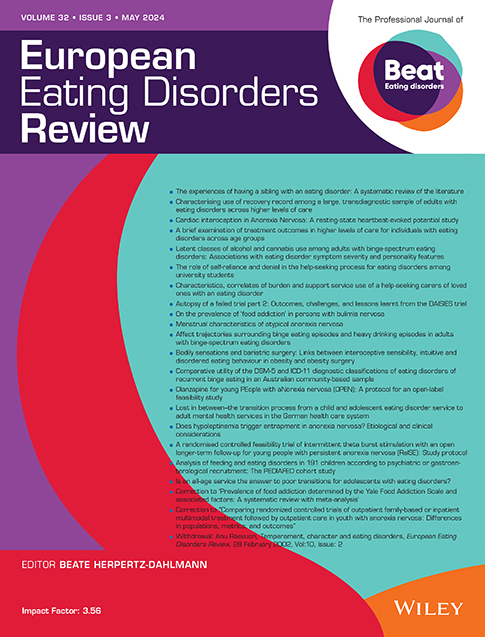Male caregivers' participation in eating disorder (ED) treatment for their affected children is less consistent than female caregivers', with unclear effects. To clarify the impact, this scoping review examined literature on male caregiver involvement in ED treatment, focusing on its impact on fathers, treatment processes, and their affected children.
A search encompassing English and French peer-reviewed articles from 1990 to 2022 was conducted. Studies distinguishing between mothers and fathers, addressing Diagnostic and Statistical Manual of Mental Disorders or International Classification of Diseases ED diagnoses, and involving active interventions were included. From 1651 initially identified articles, 251 were retained after abstract and title review, and 45 met all criteria.
Documented outcomes indicated fathers' engagement in ED treatment improved their well-being and family functioning, but these gains were not consistently tied to treatment outcomes. Father attendance, improved caregiving skills, and their expectations of treatment correlated with better outcomes for their affected child.
Father involvement in ED treatment remains under-explored. This review emphasises fathers' positive impact while highlighting the need to better understand the link with overall patient outcomes. We call for proactive exploration of how to surmount barriers to fathers' involvement and ensure that paternal contributions are optimised in ED treatment alongside those of female caregivers.


